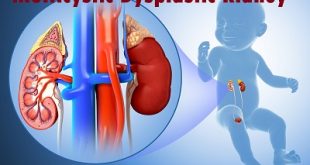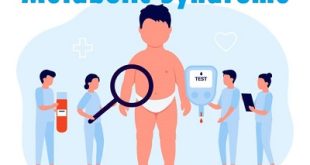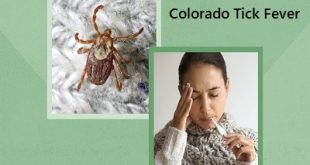Description
The Middle East Respiratory Syndrome (MERS) is a respiratory disease caused by a newly recognized coronavirus, MERS-CoV. It was first reported in 2012 in Saudi Arabia and is thus far linked to countries in or near the Arabian Peninsula. Laboratory-confirmed MERS has now been identified in Bahrain, Iran, Jordan, Kuwait, Lebanon, Oman, Qatar, Saudi Arabia, United Arab Emirates (UAE), and Yemen.
A large MERS outbreak occurred in the Republic of South Korea linked to a traveler from the Arabian Peninsula in 2015. Travel-associated cases have been identified in Algeria, Austria, China, Egypt, France, Germany, Greece, Italy, Malaysia, Netherlands, Philippines, Republic of Korea, Thailand, Tunisia, Turkey, United Kingdom (UK), and United States (US).
Transmission of Middle East respiratory Syndrome
Non-human to human transmission: The route of transmission from animals to humans is not fully understood, but dromedary camels are the major reservoir host for MERS-CoV and an animal source of infection in humans. Strains of MERS-CoV that are identical to human strains have been isolated from dromedaries in several countries, including Egypt, Oman, Qatar, and Saudi Arabia.
Human-to-human transmission: The virus does not pass easily from person to person unless there is close contact, such as providing unprotected care to an infected patient. There have been clusters of cases in healthcare facilities, where human-to-human transmission appears to have occurred, especially when infection prevention and control practices are inadequate or inappropriate. Human to human transmission has been limited to date and has been identified among family members, patients, and health care workers. While the majority of MERS cases have occurred in health care settings, thus far, no sustained human to human transmission has been documented anywhere in the world.
Middle East Respiratory Syndrome – Pathophysiology
One of the most important cells of the innate immune system is the macrophage. Its function is to eliminate pathogens, to present antigens to T cells, to produce cytokines and chemokines to maintain homeostasis and to modulate the immune response in tissues.
Compared with severe acute respiratory syndrome coronavirus (SARS-Cov), MERS-CoV can establish infection in monocyte-derived macrophages (MDMs) and macrophages. The virus induces the release of proinflammatory cytokines, leading to severe inflammation and tissue damage, which may manifest clinically as severe pneumonia and respiratory failure. Vascular endothelial cells located in the pulmonary interstitium may also be infected by MERS-CoV, and, because MERS-CoV receptor DPP4 is expressed in different human cells and tissues, dissemination of the infection may occur. This may explain the increased severity and higher fatality rate compared with SARS-CoV infection.
Interestingly, lymphopenia has been noted in most patients infected with MERS-CoV, as was noted in SARS infections. This is due to cytokine-induced immune cell sequestration and release and induction of monocyte chemotactic protein-1 (MCP-1) and interferon-gamma-inducible protein-10 (IP-10), which suppresses the proliferation of human myeloid progenitor cells.
Causes of Middle East Respiratory Syndrome
Research suggests that MERS-CoV originated in bats. It then likely spread from infected dromedary camels to humans.
According to the World Health Organization (WHO), most cases of MERS in humans have been transmitted by people in healthcare environments. However, evidence suggests that dromedary camels could also be a source of infection in humans.
The virus does not seem to pass easily from person to person unless there is close contact, as in a healthcare setting.
Researchers do not yet know how exactly camels are involved in transmitting this virus. They have identified MERS-CoV in camels in several countries in the Middle East, Africa, and South Asia.
What are the risk factors for MERS-CoV infection?
MERS-CoV can infect a person regardless of his/her health status or age group.
Recent travelers from the Arabian Peninsula and neighboring countries who develop severe acute respiratory infection should be tested for MERS-CoV.
Elderly people and those with underlying medical conditions such as diabetes, heart disease, or liver disease are at risk of severe infection.
Close association with any person infected with MERS-CoV, as in caregivers, health-care workers, or household contacts, is a major risk factor.
Contact with camel body fluids, respiratory secretions, raw or undercooked meat, and unpasteurized dairy products likely also poses a major risk of transmission to humans in the Arabian Peninsula and surrounding countries. Thus, those who work in these areas and handle live camels, or camel’s meat or milk are at risk, including veterinarians and those who work at markets or race tracks, and those who slaughter, butcher, milk, and cook raw camel products.
Cooked meat and pasteurized milk are safe to handle and consume. Not all camels may transmit the disease; Bactrian (Mongolian) camel herds currently show no infections with MERS, but researchers are not sure these camels have ever been exposed to the virus.
Symptoms – Middle East Respiratory Syndrome
- The most common symptoms of MERS are fever, cough, and shortness of breath. People may also have gastrointestinal problems, such as diarrhea, nausea, or vomiting.
- Pneumonia is a common complication. There have also been reports of organ failure linked with MERS, especially kidney failure.
- The symptoms usually appear 5–6 days after exposure to the virus, but they may take 2–14 days to arise.
- Some people transmit the virus without experiencing any symptoms, while some others with MERS experience minor symptoms.
- People with severe symptoms may need to spend a long time in the hospital, receiving mechanical ventilation and intensive care.
What are the possible complications from MERS?
In some cases, MERS can cause severe problems. These are more of a risk for older adults. They are also a risk for people who have a weak immune system or a chronic illness like diabetes, cancer, or lung disease. The problems can include:
- Lung infection (pneumonia)
- Breathing (respiratory) failure and need for a breathing machine (ventilator)
- Failure of the kidneys and other organs
- Widespread infection and low blood pressure (septic shock)
- These severe complications are more likely to lead to death from MERS.
How is Middle East Respiratory Syndrome diagnosed?
The healthcare providers will ask about your medical history. They will also ask about when you were exposed to MERS. They may ask about your recent travel and contact with sick people. They may also ask about recent contact with camels.
You will have tests to check for the cause of your symptoms. The symptoms of MERS can also be caused by other illnesses. You may have tests such as:
Chest X-ray. X-rays use a small amount of radiation to make images of the inside of your body. A chest X-ray is done to check for problems in your lungs.
Blood tests. Blood is taken from a vein in your arm or hand. This is done to check for certain chemicals that can show if you have the MERS virus or other illness.
Nasal or throat swab. A stick with a small piece of cotton at the tip is wiped inside your nose or throat. This is done to check for viruses in your nasal mucus.
Stool culture. A small sample of stool is collected from your rectum or from a bowel movement. The sample is checked for the virus.
Sputum culture. A small sample of mucus coughed from your lungs is collected. It is checked for the virus.
How Middle East Respiratory Syndrome is treated?
There is no approved treatment specifically for MERS. Most patients with the mild disease recover without complications. Patients with milder form can be treated at home and take medication for symptoms such as fever and pain. They should stay isolated to avoid spreading the disease. In more severe cases, the patient may develop lung or respiratory failure which requires them to be hospitalized. Doctors may suggest using a breathing tube, a mechanical ventilator or respirator, antibiotics, and intravenous fluids.
There is no current vaccine to protect people against MERS. Updates about potential vaccinations and treatment for MERS can be found on the CDC website and the World Health Organization website.
Treatment for MERS is done to help support your body while it fights the disease. This is known as supportive care. Supportive care may include:
- Pain medicines. These include acetaminophen and ibuprofen. They are used to help ease pain and reduce fever.
- Bed rest. This helps your body fight the illness.
Care during severe illness may include:
- IV fluids. These are given through a vein to help keep your body hydrated.
- Supplemental oxygen or assisted ventilation may be given. This is done to keep enough oxygen in your body.
- Vasopressor medicine. These help to raise blood pressure that is too low from shock.
Prevention of Middle East Respiratory Syndrome
To reduce the risk of MERS-CoV transmission, health authorities recommend:
- Frequently washing the hands with soap and water for at least 20 seconds at a time
- Avoiding undercooked meats and any food prepared in conditions that may not be hygienic
- Washing fruits and vegetables thoroughly
- Reporting any suspected cases to local health authorities
- Minimizing close contact with anyone who develops an acute respiratory illness with fever
- Wearing a medical mask
- Sneezing into a sleeve, flexed elbow, or a tissue, then immediately disposing of it
- Seeking immediate medical attention if an acute respiratory illness with a fever develops within 14 days of returning from travel
MERS-CoV is contagious, but the virus does not appear to pass between humans without close contact.
The WHO state that it is safe to consume camel meat and milk after appropriate pasteurization, cooking, or other heat treatments, but it may be advisable to avoid raw products.
They recommend general hygiene practices after visiting farms or markets where camels are present, such as washing the hands before and after touching the animals and avoiding contact with sick animals.
Travelers with chronic conditions, such as diabetes, renal failure, or chronic lung disease have a higher risk of contracting the virus and should take extra precautions.
 Diseases Treatments Dictionary This is complete solution to read all diseases treatments Which covers Prevention, Causes, Symptoms, Medical Terms, Drugs, Prescription, Natural Remedies with cures and Treatments. Most of the common diseases were listed in names, split with categories.
Diseases Treatments Dictionary This is complete solution to read all diseases treatments Which covers Prevention, Causes, Symptoms, Medical Terms, Drugs, Prescription, Natural Remedies with cures and Treatments. Most of the common diseases were listed in names, split with categories.







